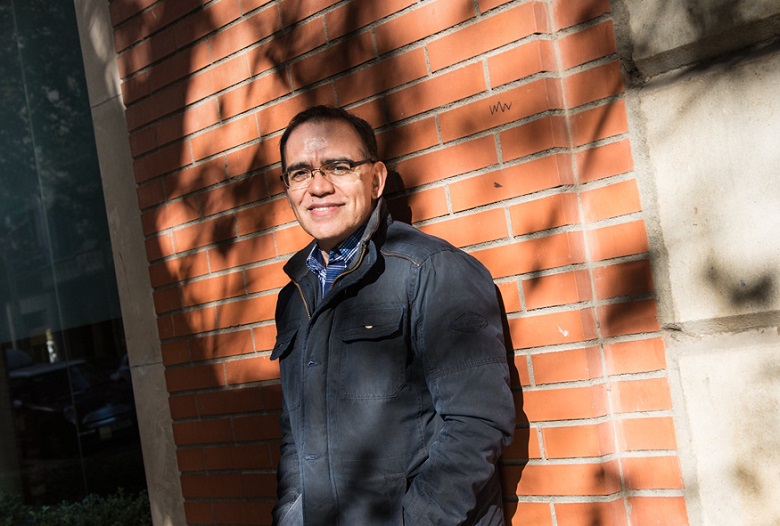More Than Education Needed for Development

Carlos Aldana has been a university lecturer for 25 years. He has a special interest in popular education and empowerment efforts because of his work with Guatemalan peasant and indigenous movements. He is currently director of the Guatemalan Institute of Alternative Education. He served as an educational consultant to UNESCO and, until recently, was a Deputy Education Minister in the Guatemalan Government.
Having worked closely with ATD Fourth World for many years, Carlos Aldana co-authored the book Aquí donde vivimos (Here Where We Live), produced and published by ATD. He will take part in the Symposium at Cerisy International Cultural Centre on the theme of “Rethinking our world from the perspective of poverty”. Here, he is interviewed by Marcelo Colussi for Argenpress.
Education is often cited as a tool of liberty and the key to human development. Some people question this belief and it needs to be examined more closely in different contexts. How can we ensure that education truly is liberating and empowering?
This idea is a myth. In fact, more often the complete opposite is true: development is the key to education. Development causes a series of political, social, cultural and infrastructural changes which in turn lead to improvements in the education system. Political and economic powers often present education as a way of becoming a “developed” country. But the reality is that the same dominant political parties are one of the root causes of our chronic “under development”. I believe that stating that illiteracy is the cause of “under development” is disrespectful to everyone’s intelligence. It’s actually an elitist and exclusive society, maintained by political control, which leads to such high rates of illiteracy. This myth of education as a catalyst for development also comes from international organisations. Paulo Freire said that education isn’t the lever for development, but development cannot take place without education. It is through this sort of dialectical relation that a more complex process occurs: better economic and living conditions help make higher quality education.
In our countries in fact, rather than speaking about poverty per se, it would be more relevant to talk about how people become poor. The education that is available to the most marginalized people does not set them free, but rather reinforces their excluded status.
Paulo Freire saw education as a means of liberation but in reality our education system often seems to repress people rather than liberate them. Does education serve to liberate or oppress?
School, as an institution developed by the dominant classes, is very specific about its function – to enable the future workforce to be skilled in the areas of current economic focus. School teaches people that there are no opportunities outside of the ones they are shown, and people take this as a fait accompli. Such a limited view suppresses a person’s natural critical capacity, creativity, and spontaneity. School doesn’t encourage the debate, dissidence or questioning of the established order that enables a system dominated by centuries of silence and repression to advance. International organisations are also interested in improving access to education, but they do not question the quality of the education being provided. Advocating for the right to education is essential. But access to high quality education is a more important right.
When we speak of education we automatically think of the formal, classroom-based system. However in Latin America there are some profound and beautiful examples that show education can be found everywhere: in the streets, in the fields, in unions and in many different organisations within civil society. This kind of informal education has a greater impact on people but it doesn’t provide the certification of formal education. The media has more influence on people’s values and sense of citizenship than school does. Popular education needs to be integrated into the school curriculum, not only in terms of methodology, but more importantly as a political vision which has the power to lead to social change.
Neo-liberal politicians favour privatization across all sectors. Education is being commercialized and publicly funded schools are loosing ground. What can we do about this?
We are not going to be able to privatize that which is informal. We cannot privatize the organizational capabilities of the general public. However, it is true that in Guatemala privatization has had a big impact: 77% of secondary school students study at private institutions. It’s a huge risk that at such an influential age when young people are developing their vision of the world, so many of them are doing so in private institutions. The fact that these institutions are a growing trend is also a tremendous risk. For these reasons all our energy must go into supporting publicly funded schools.
Adapted from an interview in Spanish conducted by Marcelo Colussi on 10 February 2009 for Argenpress.

